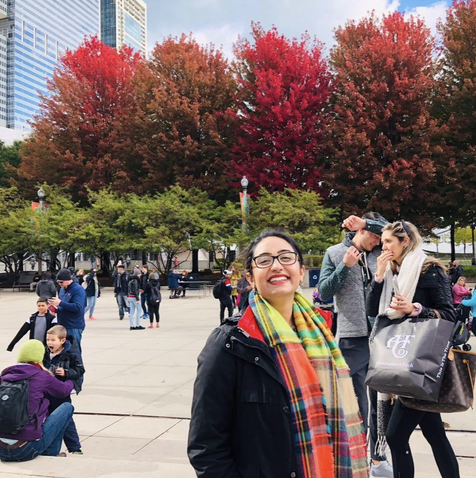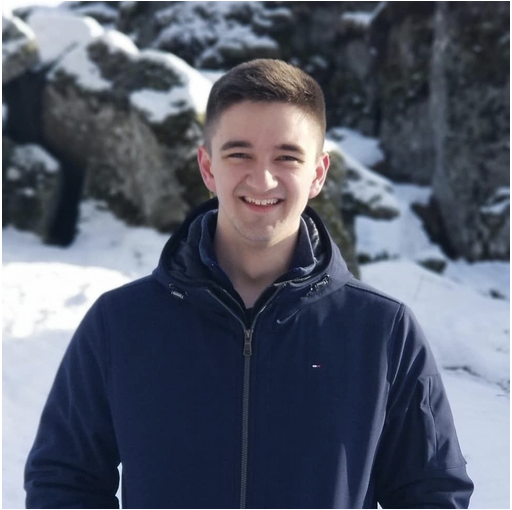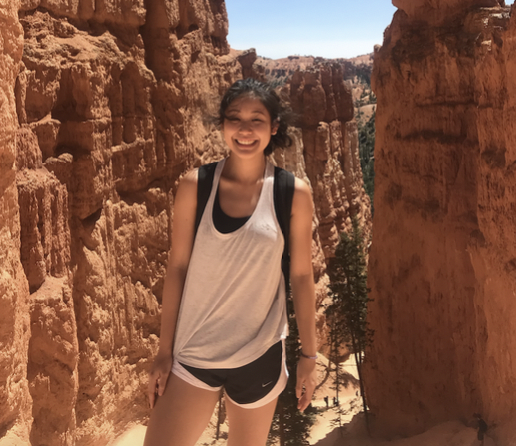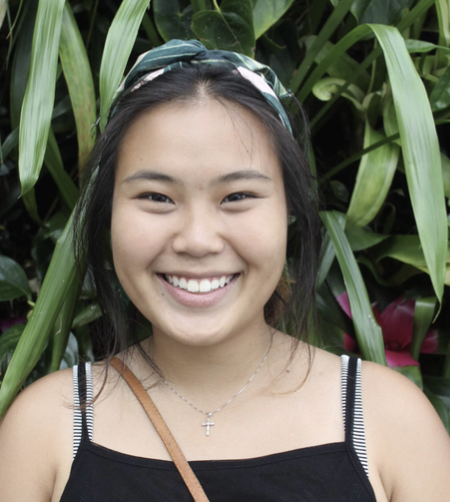Spotlight Kampala is a multi-institutional research collaboration of universities and community advocates that aims to shed light on the inequities faced by informal urban communities in accessing and utilizing electricity. Our data provides important baseline statistics on metrics of access like access rates, affordability, supply reliability and quality as well as an understanding of how community members perceive and navigate barriers to access. We aim not only to provide summary statistics, but to ground these learnings in the daily lived experience of Kampala’s informal residents. Community participation is a core objective of the work, with community members involved in each step of research design, execution, and dissemination. The project also focuses heavily on working closely with local stakeholders like the Government of Uganda’s Ministry of Energy and Mineral Development, the utility Umeme Limited, and community-based organization like ACTogether Uganda and the National Slum Dwellers Federation of Uganda.
For more information and contact with the project team, visit the Spotlight Kampala website.
Xi Xi is a Master’s student for the Energy Resource group. Xi Xi uses interdisciplinary methods such as quantitative modeling techniques and policy analyses to assess impacts on emissions, energy use, and other socio-economic indicators. Xi Xi looks forward to applying her knowledge in the context of international development. Xi Xi would also like to study how developing countries may be affected by or benefit from tensions between China and the West related to China’s emerging role in international development and international climate politics.
In RAEl she is researching US-China climate policy, decarbonization in Africa, and China’s role in Africa, among other topics.
Prior to joining ERG, Xi Xi earned a BA from Wellesley College. Xi Xi has worked for the Institute for Global Decarbonization Progress (iGDP), Abt, and the Massachusetts Clean Energy Center (MassCEC).
Xi Xi also enjoys traveling in their free time.
Jess Kersey is a fourth-year PhD student broadly interested in technology, regulation, and policy to improve energy access and climate adaptation efforts across multiple geographies including East Africa, Latin America, and island nations. Jess is also a research affiliate of the Lawrence Berkeley National Lab and consults with ESMAP, the Asian Development Bank, and the Global Energy Alliance for People and Planet.
Her current work focuses on deconstructing urban/binary spatial categorizations and highlighting how examining energy poverty with greater spatial nuance reveals access barriers for the growing populations in informal and/or peri-urban communities. She leads the Spotlight Kampala project, which is a multi-stakeholder research partnership to understand energy access affordability, safety, formality, reliability, and quality in informal settlements.
Jess holds dual bachelor’s degrees in chemical engineering and political science from Virginia Tech. She previously worked as an energy engineer with AECOM’s Energy business line providing technical, project management, and business development support for renewable energy, energy efficiency, and sustainability projects. She has a diverse engineering background which includes experience in energy, construction management, and disaster relief both domestically and internationally including work in Haiti, Panama, El Salvador, the US Virgin Islands, and Iraq.
Sam Miles is a Ph.D. student in the Energy and Resources Group, and in the Renewable and Appropriate Energy Lab at the University of California, Berkeley.
His research focus is at the intersection of the scalability challenge for electricity mini-grids and the socio-economic characteristics of urbanization in Africa, particularly for the artisans and entrepreneurs who constitute the ‘productive’ users of such energy systems. He will engage with these questions as an INFEWS (Innovations at the Nexus of Food, Energy, and Water Systems) NSF scholar.
Previous to life at ERG, Sam worked as a freelance writer covering technology in emerging markets, an educator at the African Leadership University in Mauritius, and as an international development consultant based in West Africa. He holds an MA in International Energy from Sciences Po — Paris and a BA in Ethics, Politics, and Economics from Yale.
At ERG Annelise has continued the study of community energy solutions, with both cooking and community extension services focal areas for her analytic and field studies.
Annelise Gill-Wiehl studied environmental engineering and international development studies at the University of Notre Dame. There, she worked with the Keough School of Global Affairs’ Associate Dean for Policy and Practice, Sara Sievers, through the Kellogg International Scholars Program. They investigated how to incorporate the preferential option for the poor into policy. Gill-Wiehl’s own research investigates energy infrastructure and the barriers to technology adoption. Gill-Wiehl and Professor Sievers piloted a Community Technology Program in Shirati, Tanzania through a Kellogg Research Grant.
While an undergraduate she interned for the Foundation of Sustainable Development in Masaka, Uganda. Additionally, Gill-Wiehl conducted roughly 200 household energy surveys through an Experiencing the World Fellowship to investigate energy infrastructure in Shirati. Her research interests are at the intersection of engineering and policy in the East African context. She hopes to pursue a PhD to further investigate these issues.
Thesis Title: Pilot of Community Technology Workers in Shirati, Tanzania
Jess Carney is interested in understanding how sustainable energy integration impacts power grids and electricity markets. She received her undergraduate degree at Johns Hopkins University in 2018, where she majored in Environmental Science and minored in Applied Mathematics and Statistics. She has held internships at the Independent System Operator or New England (ISO-NE), studying environmental policy and its effect on carbon emissions and energy prices, and at the Vermont Electric Power Company (VELCO), analyzing the impact of high renewable penetration on system stability and integrating state renewable goals into transmission planning procedures.
She has wide-ranging interests that include renewable energy integration, grid stability, energy access, and energy literacy and education.
A recent graduate of Northeastern University with a B.S. in Industrial Engineering with minor in Law & Public Policy.
I intend to research the intersection of renewable energy technology, education, and specifically prison education programs focused on STEM. Ultimately, my goal is to work with formally incarcerated citizens as they prepare for re-entry into society. I aspire to work with renewable energy projects in Africa to fulfill my goal as developing into a World Class “Energy” Engineer.
Shuba is the co-director of the California Energy Commission sponsored project
” Engaging Communities in the Design of Sustainable Energy and Localized Futures (SELF)”
Among her many publications are a number that addresses the energy-access-affordability-climate nexus, including:
- The California Demand Response: Potential Study, Phase 3; Brian F.Gerke,Giulia Gallo,Sarah J. Smith, Jingjing Liu, Peter Alstone, Shuba V. Raghavan, Peter Schwartz, Mary Ann Piette, Rongxin Yin and Sofia Stensson.
- Translating climate change and heating system electrification impacts on building energy use to future greenhouse gas emissions and electric grid capacity requirements in California; Brian Tarroja, Felicia Chiang, Amir AghaKouchak, Scott Samuelsen, Shuba V. Raghavan, Max Wei, Kaiyu Sunand Tianzhen Hong, Applied Energy, 2018, vol. 225, issue C, 522–534
- Building a Healthier and More Robust Future: 2050 Low-Carbon Energy Scenarios for California. California Energy Commission. Primary Authors: Max Wei, Shuba Raghavan, Patricia Hidalgo-Gonzalez, Contributing Authors: Rodrigo Henriquez Auba, Dev Millstein, Madison Hoffacker, Rebecca Hernandez, Eleonara Ruffini, Brian Tarroja, Amir Agha Kouchak, Josiah Johnston, Daniel Kammen, Julia Szinai, Colin Shepard, Anand Gopal, Kaiyu Sun, Tianzhen Hong, and Florin-Langer James. Publication Number: CEC-500‑2019-033; March 2019
- Pathways to Decarbonize Residential Water Heating in California, Shuba V Raghavan, Max Wei, Daniel Kammen, Energy Policy 109 (2017) 441–451
- Adoption of Solar Home Lighting Systems in India: What might we learn from Karnataka? Harish, Iychettira, Raghavan, Kandlikar, Energy Policy, Vol 62, November 2013, pp ‑697–706.
- Assessing the impact of the transition to Light Emitting Diodes based solar lighting systems in India, Santosh Harish, Shuba V Raghavan, Milind Kandlikar, Gireesh Shrimali, Energy for Sustainable Development, Volume 17, Issue 4, August 2013, pp. 363–370.
For the UC Berkeley Climate Justice course, syllabus, click here.
Meet the Laos Energy Modeling and Policy Analysis (Undergraduate!) Team:
The focus of this inter-disciplinary and inter-university research group is to develop sustainable energy, water, and land-use scenarios for Laos, and to work with local stake-holders on the costs and benefits for communities, the nation, and the regional commerce in energy, water, food, timber and other commodities.
Aaditee Kudrimoti
 Bio: Aaditee is a fourth-year at UC Berkeley studying political science and public policy with a concentration in energy, development, and international relations. Aaditeeis originally from Tucson, Arizona, where she began to develop an interest in international environmental affairs. At UC Berkeley, Aaditeeis working on projects in the political economy of Chinese development finance, rural electrification, and collective action. Aaditeehas become especially interested in how the rise of renewable technology is influencing energy diplomacy around the world. She hopes to pursue a career in academia and public policy and work on governance tools to build the bargaining capacity of LDCs against MNCs, foreign state-owned enterprises, etc. on the subject of FDI and other types of investment. She sees SWITCH-Laos as having the potential to serve as a critical tool in assisting the increase of the Lao people’s bargaining power over FDI in the energy sector and thus their autonomy in determining their own economic development. Outside school, Aaditee’s interests include dance, food journalism, and cooking.
Bio: Aaditee is a fourth-year at UC Berkeley studying political science and public policy with a concentration in energy, development, and international relations. Aaditeeis originally from Tucson, Arizona, where she began to develop an interest in international environmental affairs. At UC Berkeley, Aaditeeis working on projects in the political economy of Chinese development finance, rural electrification, and collective action. Aaditeehas become especially interested in how the rise of renewable technology is influencing energy diplomacy around the world. She hopes to pursue a career in academia and public policy and work on governance tools to build the bargaining capacity of LDCs against MNCs, foreign state-owned enterprises, etc. on the subject of FDI and other types of investment. She sees SWITCH-Laos as having the potential to serve as a critical tool in assisting the increase of the Lao people’s bargaining power over FDI in the energy sector and thus their autonomy in determining their own economic development. Outside school, Aaditee’s interests include dance, food journalism, and cooking.
Alex Lathem
 Bio: Alex Lathem is a third-year undergraduate at Yale University. He is a physics major with several years of experience using programming languages, including Python SQL, C, and Bash, to analyze scientific data. Previous research projects Alex has worked on include astrometry of near-Earth asteroids and the creation of a Hubble curve through the analysis of Type Ia supernovae. Alex spent the summer of 2019 working on the SWITCH model for China, and is very excited to apply the skills he learned there to a version for Laos. Outside of research, Alex is also interested in music, video game design, linguistics, and history.
Bio: Alex Lathem is a third-year undergraduate at Yale University. He is a physics major with several years of experience using programming languages, including Python SQL, C, and Bash, to analyze scientific data. Previous research projects Alex has worked on include astrometry of near-Earth asteroids and the creation of a Hubble curve through the analysis of Type Ia supernovae. Alex spent the summer of 2019 working on the SWITCH model for China, and is very excited to apply the skills he learned there to a version for Laos. Outside of research, Alex is also interested in music, video game design, linguistics, and history.
Ashley Yip
 Bio: Ashley is a second-year undergraduate studying environmental science with an emphasis in global politics. She moved to New Mexico, where she developed an interest in environmental affairs. At UC Berkeley, she is involved in a pre-law association that helped her explore her interest in law and how she may integrate that into environmentalism. Off campus, she is working on a sex education reform project in Singapore with the Ministry of Education. She is constantly exploring the intersection between policy, education, and the environment. She hopes to return home to Singapore and pursue a career in international environmental policy or law within Southeast Asia. Ashley chose to work on SWITCH-Laos not only because greening ASEAN’s economic development is essential to tackling climate change, but also because she is familiar with the demographic. She has done research in regards to both urban and rural agriculture in Asia and the US, and led research for environmental management in business operations. Outside of school, her interests include climbing, hiking, piano, and camper vans.
Bio: Ashley is a second-year undergraduate studying environmental science with an emphasis in global politics. She moved to New Mexico, where she developed an interest in environmental affairs. At UC Berkeley, she is involved in a pre-law association that helped her explore her interest in law and how she may integrate that into environmentalism. Off campus, she is working on a sex education reform project in Singapore with the Ministry of Education. She is constantly exploring the intersection between policy, education, and the environment. She hopes to return home to Singapore and pursue a career in international environmental policy or law within Southeast Asia. Ashley chose to work on SWITCH-Laos not only because greening ASEAN’s economic development is essential to tackling climate change, but also because she is familiar with the demographic. She has done research in regards to both urban and rural agriculture in Asia and the US, and led research for environmental management in business operations. Outside of school, her interests include climbing, hiking, piano, and camper vans.
Rachel Ng

Bio: Rachel is a second-year Environmental Science and Data Science major. A Singapore-native, Rachel describes that SWITCH-Laos extremely important to her because it is an important step towards the energy security of Southeast Asia. She believes that the sustainable electrification of Southeast Asia is key to regional grid stability and energy trade. She is pursuing SWITCH-Laos as critical in leading the way towards sustainable electrification. Rachel is interested in the intersectionality between climate change and community, exploring how community based issues caused by climate change can be alleviated through data. Furthermore, Rachel is currently concerned about equal access to education and volunteers weekly as a mentor to elementary school students. In the future, she hopes to return to Singapore and guide environmental change through creating an ecosystem of sustainable communities and businesses. Her hobbies include dance, rock climbing and water sports.




You must be logged in to post a comment.